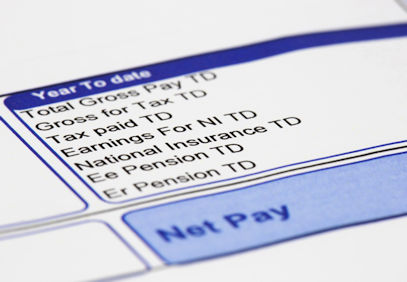There is a general principle that deductions from wages, except for those relating to statutory deductions (e.g.for PAYE & NI and student loan repayments, or a court order) and the recovery of overpayments of pay or expenses, are unlawful. This is unless deductions are specifically provided for in contracts of employment or have been agreed to in writing by the employee. Special conditions relating to workers in the retail industry also apply and are outlined below.
Any worker who believes that he or she has suffered an unlawful deduction from wages or been required to make an unlawful payment can seek redress by presenting a complaint to an Employment Tribunal. This right applies regardless of the worker's length of service. Any such complaints must normally be made within three months of the date on which the wages were due to be paid (or, if that is not reasonably practicable, within such further period as the Tribunal considers reasonably practicable). In the case of a payment by the worker to the employer, the three months runs from the date on which the payment was received by the employer. In the case of a series of deductions or payments, the three months runs from the last deduction or payment in the series. The Deduction from Wages (Limitation) Regulations 2014 was intended to reduce how far back a worker could claim for unpaid holiday pay to which he or she may have been entitled to under the Working Time Regulations. However, the legislation was so broadly drafted that it provides a relatively wide 'catch all' that time limits claims for other backdated 'deductions' to two years.
Wages, for the purposes of this legislation, are sums payable to the worker by his or her employer in connection with his or her job. They include:
Certain other types of payment do not count as wages, and individuals have no special protection if deductions are made from them - although they may still be entitled to make a breach of contract claim if the deductions are in breach of contract. These types of payment include:
It is unlawful for an employer to deduct more than 10 per cent from the gross amount of any payment of wages to a retail worker, if the deduction is made because of shortages or deficiencies. Where deductions can be made from a retail worker's wage to pay for shortages or stock deficiencies, the sums owed may be recovered in instalments of no more than 10 per cent of the worker's gross wages.
A deduction of any size from the wages of a retail worker is unlawful if made more than twelve months after the cash shortage or stock deficiency to which it relates was (or ought reasonably to have been) established by the employer, unless:
Payments received by an employer from a retail worker are unlawful unless certain additional conditions are met:
A demand for payment can be given or posted to the worker, or left at his or her last known address, on a pay day. If the pay day is not a working day of the employer's business, the demand may be made on the first working day following the pay day. If an employer goes to court to recover money that he or she has asked a retail worker to pay because of shortages or deficiencies, the court must ensure that payments do not exceed instalments of 10 per cent of gross wages. This does not apply however to any amounts paid by workers from their final payment of wages or sums paid by them once they are no longer working for the employer.
